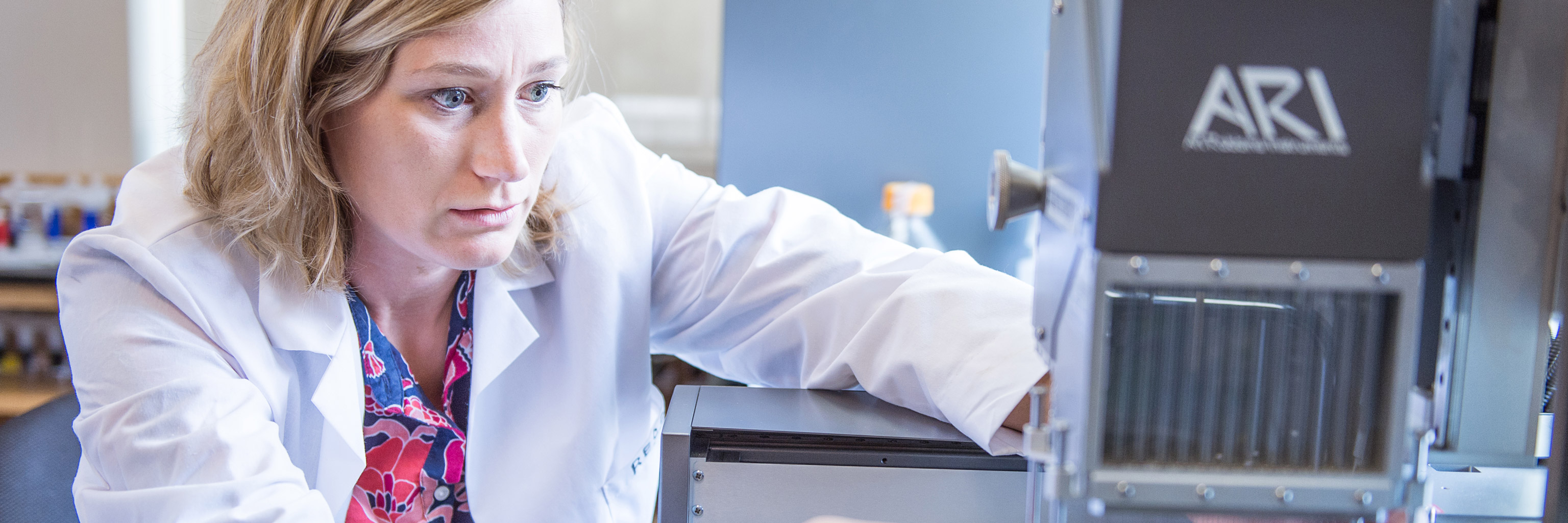Biology depends on complex interactions between organisms, organs, and molecules, depending on your perspective. The biochemistry of supramolecular complexes emphasizes interactions between macromolecules that are associated by non-covalent interactions.
Consider these examples: A simple virus is a dynamic machine comprised of a piece of RNA contained in a self-assembling multi-protein cage; how does it regulate infection? In cells, how does a membrane protein like a GPCR transduce a signal to its associated G-protein? How can folding a protein be modulated by ligands and a specific, fluctuating environment. Interaction between molecules is essential to building large, biologically active complexes from small components.
Meet the Supramolecular Complexes faculty Learn about facilities


 The College of Arts
The College of Arts